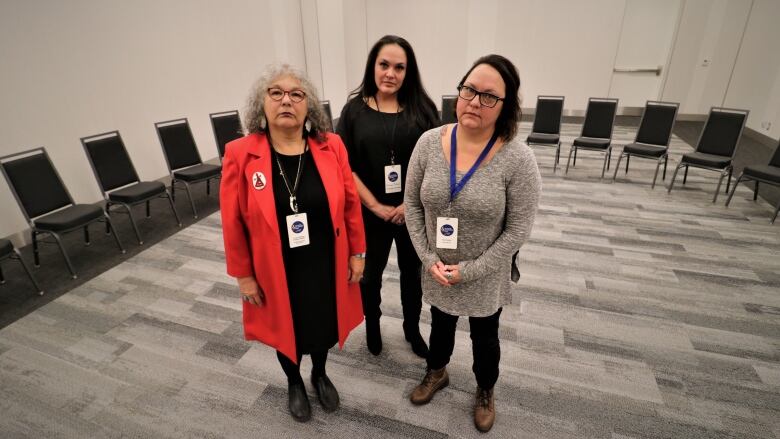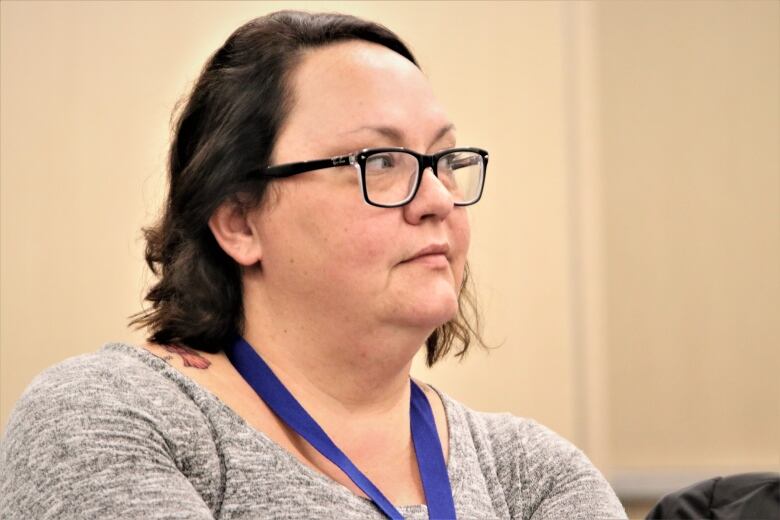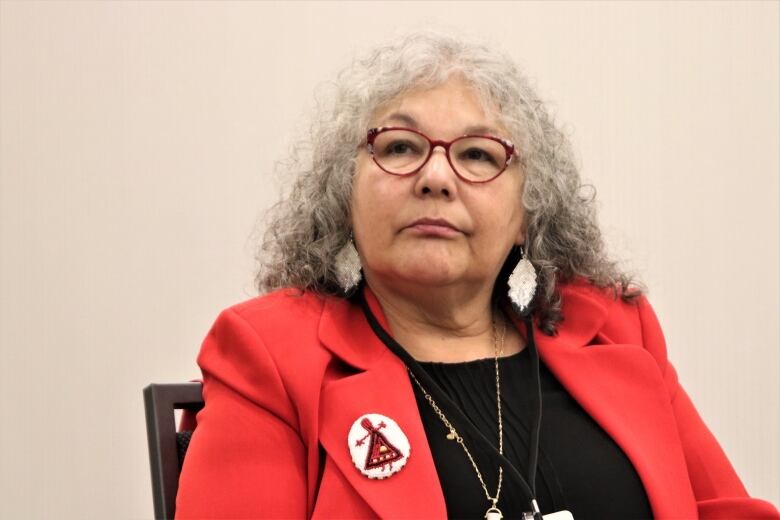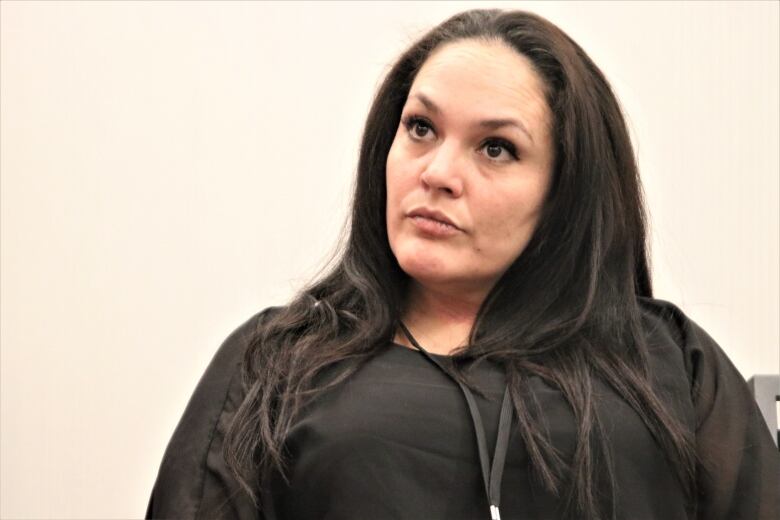Mi'kmaw women prompt last-minute change to First Nations Self Government Summit
Discussion of missing and murdered Indigenous women added after requests by family of Cassidy Bernard

The First Nations Self Government Summit in Halifax added atalking circle on how First Nations leaders can address the issues of missing and murdered Indigenous women and girls after lobbying by agroup of Mi'kmawwomen.
On Tuesday, while addressing delegates on the first day of the summit, Assembly of First Nations (AFN) Regional Chief Morley Googoo announced he'd made the addition to the agenda following a conversation with the family of Cassidy Bernard.
Bernard, a 22-year-old Mi'kmawwoman, was found deadat her home in We'koqma'q First Nation in October and police have classifiedher death as suspicious.
"When I looked at the agenda, I was really upset," said Annie Bernard-Daisley, Cassidy Bernard's first cousin.
"I didn't see any sort of arena for a discussion on missing and murdered Indigenous women. When I went to Morley, I said 'We need a venue,' and it was done."
Bernard-Daisley, a We'koqma'qband councillor and board member of theNative Women's Association of Nova Scotia (NSNWA),said she was disappointed that the issues facingIndigenous women in Canada weren'tconsidered first at an event focused on First Nations self-determination.
A matter of urgency
Delegates were invited to discuss the issues and share experiences at a talking circle scheduled for mid-afternoon Wednesday. The session fit the format of the summit, which was aimed at gathering and provoking ideas on self-determination in Mi'kma'ki, the territory of the Mi'kmaq.

"I can't describe the overwhelming urgency there is to discuss this matter," saidBernard-Daisley.
"Especially in an arena filled with national leaders, political leaders, all the chiefs and councils across the Maritimes. All of us have to work together."
Cassidy Bernard's death was within a week of that of another youngMi'kmawwoman, Candace Stevens, whose death is being treated as a homicide. Both were mothers toyoung children.
Bernard-Daisley says it's not just Cassidy's death that's driving her advocacy it's how she lived.
"How she took the world on and how she represented herself,that's carrying over to me," she said.
"She's with me all day long.I feel that fight in her.And I will do that for her, and ask everyone to do that for her.It's not only her we're fighting for. We're fighting for them all."
Including women's voices
The talking circlewas also a way to emphasize women's voices, which were lackingat the summit, said Lorraine Whitman, president of Nova Scotia Native Women's Association (NSNWA) and secretary of the Native Women's Association of Canada (NWAC).

"We're included, in my mind, only as a token," said Whitman."We're here but we're not participating at the tables."
We're included, in my mind, only as a token- Lorraine Whitman
Whitman, who helped Bernard-Daisley co-ordinate the talking circle,said she thinks the adversity facing Indigenous women is the result ofthe patriarchal systemimposed on First Nationsby Canada.
She said the underrepresentation of women in political leadership is an indicator that more needs to be done for Indigenous women to achieveself-determination.
"Our creator has us mirrored as equal," she said.
"Our women were companions to the men in the physical, ...in spirituality but also in the governance. Along the way, that's beenmissing."
Traditional role in decision making
Karen Pictou, executive director of the Nova Scotia Native Women's Association, said better supporting Mi'kmaw women translates to better healthier Mi'kmawcommunities.
"We are the keepers of our family, we are the glue of our communities," she said.
"Any time there's a crisis, it's our grassroots women that show up and take care of each other."

Pictou said she wants First Nations leaders to consider the roles of Mi'kmaw women traditionally. She said they've always been sought to provide the "emotional component" necessary in sound decision making.
Media were asked not toattend the talking circle.Dozens of delegates attended, but Atlantic region chiefs did notdue to a scheduling conflict.Morley Googooattended part of the session.
Bernard-Daisley, Whitman and Pictousaid that while local Mi'kmaw leaders are "extremelysupportive" on women's issues,they hope a result of this week'ssummit would be a regional effort to make space in the political realm for First Nations women.
Summit organizers said a report on the findings and results of the summit will be released, but could not provide a timeline.
Clarifications
- A previous version of this story said Atlantic region chiefs did not attend the MMIWG talking circle. In fact, they did not attend the session due to a scheduling conflict.Nov 29, 2018 11:30 AM ET












_(720p).jpg)


 OFFICIAL HD MUSIC VIDEO.jpg)
.jpg)



























































































